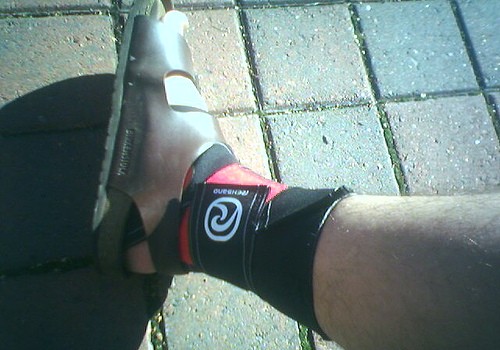
Overtraining can Lead to Bone Damage and Stress Fractures
Too much endurance exercise, especially, can lead to bone damage including stress fractures and damage to the attachment points of tendons and ligaments, as a result of repetitive trauma. This type of exercise can also lead to an endocrine environment conducive to a loss of bone density and the combination of the two goes some way to explaining why runners break their feet so often. The best way to protect against this is with adequate strength training and a good diet - and rest. Many runners don't rest anything like enough and the low-intensity nature of their sport means they can push themselves far past the point of injury before they even realize there's anything wrong.
- Important notification about information and brand names used in this slideshow!
- Photo courtesy of Roberto D'Angelo by Flickr : www.flickr.com/photos/roberdan/1123189635/
- www.shape.com/fitness/workouts/9-reasons-skip-your-workout-sometimes
- http://men.webmd.com/features/exercise-addiction?page=2
- http://health.usnews.com/health-news/blogs/on-fitness/2010/11/05/10-signs-youre-exercising-too-much
- http://www.ivillage.ca/health/fitness/9-reasons-why-overdoing-it-the-gym-hurting-you
- http://www.medicinenet.com/script/main/art.asp?articlekey=78938
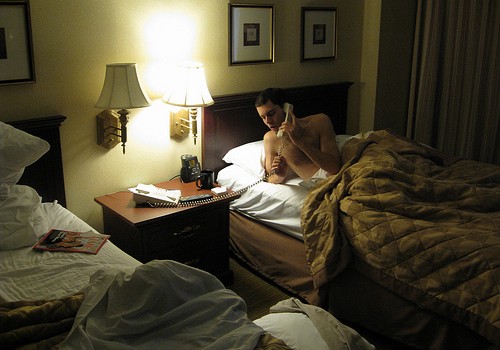
Training Too Hard Can Cause Trouble Sleeping
Sleeping troubles can be a cause and a symptom of overtraining. When you're tired you can't train as hard because you can't concentrate as well or produce as much neural drive; when you can't train properly your hormonal cycles get disrupted and sleep becomes harder. Training effectively helps improve sleep quality. If you're having trouble sleeping, move to another room and read a book by a low light for half an hour. Don't look at any screens or turn on electric lights if you can help it, and don't lie in bed struggling to sleep; it makes insomnia worse.
- Important notification about information and brand names used in this slideshow!
- Photo courtesy of Kai Hendry by Flickr : www.flickr.com/photos/hendry/2291202384/
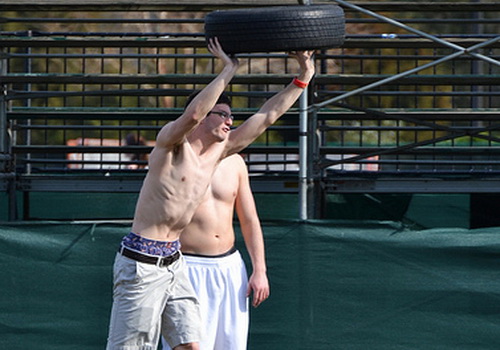
Muscle Soreness Lasts Longer If You Don't Rest Enough
If you're overtraining, the muscle soreness from one session can run into the next session. Muscle soreness is actually not that well understood and it's not a reliable guide to the difficulty of a training session, or the effectiveness of a program. But you shouldn't be constantly sore unless you're consciously using an 'overtraining training' protocol, which are for advanced trainees only. Think of it this way: you can't lift your 1-rep max 15 times. Neither can you do a max effort training session every time you train. It's not that the consequences would be bad, it's that it can't be done.
- Important notification about information and brand names used in this slideshow!
- Photo courtesy of Tony Alter by Flickr : www.flickr.com/photos/78428166@N00/8632705351/
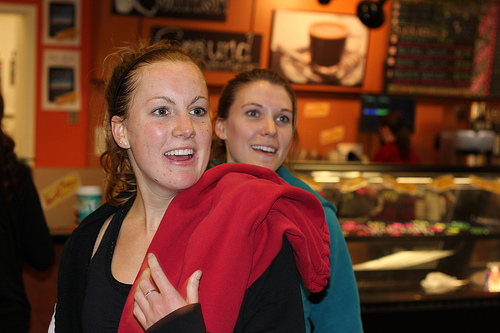
Your Menstrual Cycle and Chances of Pregnancy Can Be Affected
Men are biologically frail; females outlive males in virtually every population on earth and outnumber them by a small margin nearly everywhere too. But women are hormonally frail - it;s easier to disrupt a woman's hormonal environment than a man's. One good sign that you're a woman who's overtraining is that your menstrual cycle is interrupted. This can also be due to other stressors including intense psychological stress or insufficient food. Reducing training intensity and frequency and increasing food intake is a good idea if this problem presents itself, especially if you're hoping to become pregnant.
- Important notification about information and brand names used in this slideshow!
- Photo courtesy of tiffany assman by Flickr : www.flickr.com/photos/tiffanyassman/5558770902/
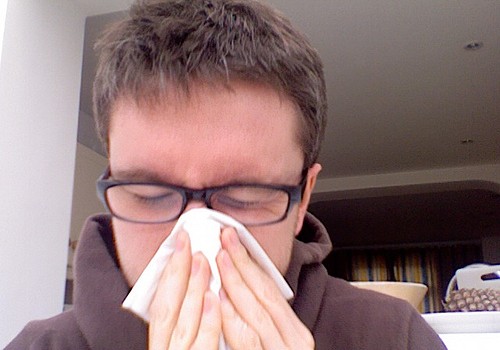
A Weakened Immune System id a Good Sign That You're Overtraining
Overtraining can weaken your immune system. When we train out bodies undergo oxidative stress - the body is stressed by exposure to oxygen, which is both essential to our survival and toxic to the body's tissues. Consequently we need antioxidants like vitamin C to ward off the damage and construction materials in the shape of protein to rebuild damaged tissues. If you train beyond your ability to recover your immune system will begin to suffer as your body undergoes more oxidative stress than it can handle, and you'll find yourself resting whether you mean to or not when you get the flu.
- Important notification about information and brand names used in this slideshow!
- Photo courtesy of Iain Farrell by Flickr : www.flickr.com/photos/iain/4402905245/
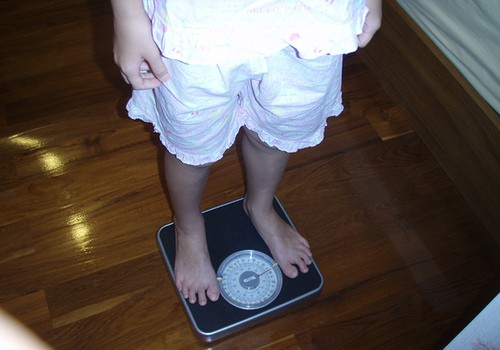
Weight Loss or Gain Can Plateau as Your Metabolism Falters
Body weight is a strange thing. If you're trying to gain muscle, overtraining will make you either not gain it, or even lose it. If you're working to lose fat though, overtraining will cause you to not lose it, or eve to gain it! Huh? How can exercise make you fat? How can the same stressor have two opposite effects? It doesn't. Overtraining puts your body into permanent recovery mode, scrounging for spare nutrients, stressed and tired. Cortisol levels rise and testosterone levels fall, muscle tissue is catabolyzed for fuel and fat is laid down as a stress response. If you feel too exhausted to train, maybe you are.
- Important notification about information and brand names used in this slideshow!
- Photo courtesy of Twentyfour Students by Flickr : www.flickr.com/photos/53771866@N05/6197217348/

You'll Eat More, and More Trash, When You Overtrain
Overtraining produces a hormonal cascade that's similar to the one you get when you don;t get enough sleep. It wrecks your impulse control, it makes you crave sugary, fatty foods and it leaves you feeling starved at the worst times. As a result, you'll find yourself eating more, obstructing your weight loss goals. Instead of going down this road, try to make sure you get enough quality rest and eat enough to support you activity. That way, you should be able to avoid overtraining and the cravings for muffins that come with it!
- Important notification about information and brand names used in this slideshow!
- Photo courtesy of Alison B. by Flickr : www.flickr.com/photos/itsumoshokyuuichi/129833769/

Feeling Exhausted All the Time And Having No Enthusiasm for Training
Constantly feeling tired is a good sign that you're overtraining. Remember you need to fit training in around the rest of your life, and that you need to get enough rest and enough food to support your training. Constant tiredness can be the first warning sign that you're heading down a road that leads to depression and anxiety troubles and insomnia, and worse; take a break when you feel this way and do some lighter training or don't train at all if it's too bad.
- Important notification about information and brand names used in this slideshow!
- Photo courtesy of Mathias by Flickr : www.flickr.com/photos/afroboof/5659479506/
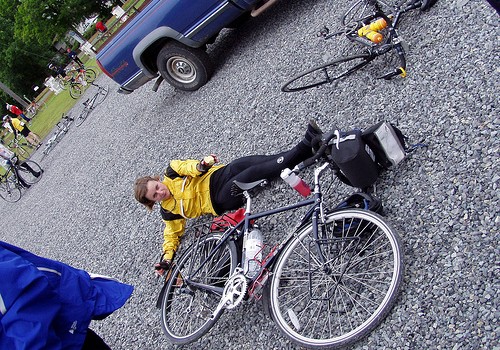
You Can Burn Yourself Right Out By Overtraining If You Ignore Danger Signals
If you overtrain to the point where you can't force yourself to any more, you'll simply burn out. For some people, their physical health will go first, and they'll get symptoms of exhaustion - flu-like symptoms that force them to rest. For others they'll suffer migraines, if they're prone to them. Autoimmune problems like psoriasis and asthma will play up, old injuries will hurt more and you'll feel strange mentally too. This is obviously a state of affairs best avoided, so try to find a medium between training enough to get the results you want and training so hard that you make yourself sick.
- Important notification about information and brand names used in this slideshow!
- Photo courtesy of Mike Gifford by Flickr : www.flickr.com/photos/mgifford/165089597/
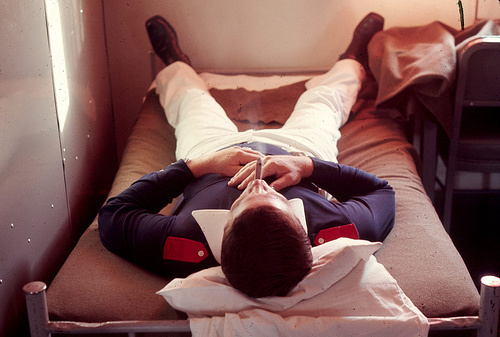
Your Muscles Grow When You're Resting
Your muscles don't grow when you train: they grow when you rest. When you train you stimulate them to grow, but it's when you eat and rest that they actually get bigger and stronger. With that in mind, sleep and rest generally take on a whole new element of importance. Many people who train will spend time reading magazines and internet articles about new training ideas - but if they spent as much time thinking about eating and sleeping as they do about training they might see better results!
- Important notification about information and brand names used in this slideshow!
- Photo courtesy of Clyde Poole by Flickr : www.flickr.com/photos/12232898@N03/3334451266/



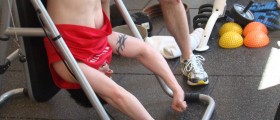

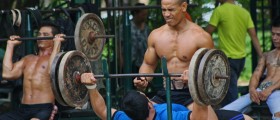



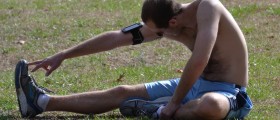

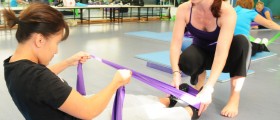

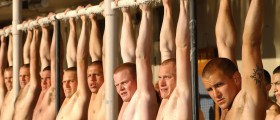


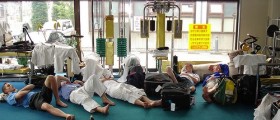








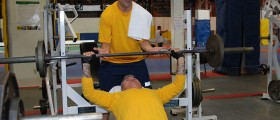
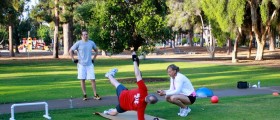
Your thoughts on this
Loading...